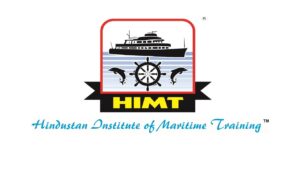Graduate Marine Engineering (GME)
Graduate Marine Engineering (GME) is a pre-sea training program designed for engineering graduates aiming to become marine engineers in the maritime industry. The program provides in-depth theoretical knowledge and practical training in areas like ship operations, engine maintenance, marine systems, and safety procedures, preparing graduates for careers on ships and in maritime sectors such as shipbuilding, offshore engineering, and port management.
IMU-CET Dehradun is one of the prominent marine engineering colleges in Dehradun, offering top-tier education and training for students aspiring to excel in the marine field. The college prepares students for the Indian Maritime University Common Entrance Test (IMU-CET), which is essential for admission to various marine engineering programs. With modern facilities, experienced faculty, and a focus on real-world applications, IMU-CET Dehradun helps students build a strong foundation for a successful career in marine engineering.
Explore IMU-CET Dehradun, one of the leading marine engineering colleges in Dehradun, and kickstart your maritime career today!
Key aspects of a Graduate Marine Engineering program include:
Training
Practical training is a crucial component of GME. This may involve ship visits, simulator exercises, and onboard training during sea service. The aim is to familiarize students with the working conditions and equipment on board ships.
Eligibility
Typically, candidates should hold a degree in Mechanical Engineering or Naval Architecture from a recognized university. Some institutions may have specific academic criteria.
Curriculum
The curriculum covers subjects such as marine engineering principles, naval architecture, ship construction, marine electrical systems, thermodynamics, and control systems. The program often includes practical training through workshops, simulation labs, and mandatory sea service.
Certification
Successful completion of the GME program usually leads to the award of a Certificate of Competency (CoC) by the maritime authorities. This certificate is necessary for individuals to serve as marine engineers on ships.
Sea Service
After completing the academic portion of the program, students are required to undergo a specified period of sea service on merchant vessels. This hands-on experience is essential for applying theoretical knowledge in real-world scenarios.
Career Opportunities
Graduates of GME programs are qualified to work as Trainee Marine Engineers on ships. With further sea service, they can progress to higher ranks, such as Fourth Engineer, Third Engineer, and so on
Regulatory Compliance
GME programs and the subsequent sea service are often structured to meet the regulatory requirements set by international maritime organizations and flag states.
It’s Important for prospective students to choose GME programs offered by recognized institutions that comply with international standards and regulations. Additionally, staying updated with the latest developments in the maritime industry and obtaining relevant certifications contribute to a successful career in marine engineering.
Contact Us
Career after Graduate Marine Engineering
After completing Graduate Marine Engineering (GME), individuals typically embark on a career in the maritime industry. Here are common career paths and opportunities for those with a GME qualification:
Trainee Marine Engineer
Wages Approx 500-1200 USD / month. Graduates often start their careers as Trainee Marine Engineers. They work under the guidance of experienced engineers to gain hands-on experience and practical knowledge.
Fourth Engineer
Wages Approx 2400-3000 USD / month.After completing the required sea service and gaining sufficient experience, individuals may progress to the position of Fourth Engineer. In this role, they assist in the operation and maintenance of the ship's machinery.
Third Engineer
Wages Approx 3500-5500 USD / month. With further sea service and obtaining necessary certifications, graduates can advance to the position of Third Engineer. Third Engineers play a more significant role in managing and maintaining the ship's engineering systems.
Second Engineer
Wages Approx 8000-11000 USD / month.Progressing in their career hierarchy, individuals may become Second Engineers. They are responsible for overseeing specific sections of the ship's machinery and assisting the Chief Engineer.
Chief Engineer
Wages Approx 12000-15000 USD / month.The highest-ranking engineer on board a ship, the Chief Engineer is responsible for the overall operation and maintenance of the vessel's engineering systems. Achieving this position requires extensive experience, sea service, and obtaining the Chief Engineer's Certificate of Competency.
Technical Superintendent
Some individuals choose to transition to shore-based roles as Technical Superintendents. In this capacity, they oversee the maintenance and repair of a shipping company's fleet, ensuring compliance with regulations.
Marine Surveyor
Graduates can pursue careers as Marine Surveyors, conducting inspections and assessments of ships for classification societies, maritime authorities, or insurance companies.
Port Engineer
Work ashore as a Port Engineer, responsible for overseeing the maintenance and repair of ships in a port or harbor.
Offshore Industry Roles
Some marine engineers transition to the offshore oil and gas industry, where their skills are valuable for maintaining and operating offshore platforms.
Continuous professional development, obtaining higher-level certifications, and staying updated with industry advancements are essential for career progression in the dynamic field of marine engineering.
How to get admission in Graduate Marine Engineering?
To get admission in a Graduate Marine Engineering (GME) program, you typically need to follow these steps:
Check Eligibility Criteria
Ensure you meet the eligibility requirements for GME programs. Typically, candidates should have a degree in Mechanical Engineering or Naval Architecture from a recognized university.
Research Institutions
Explore maritime institutions or universities that offer GME programs. Consider factors such as reputation, accreditation, faculty expertise, infrastructure, and placement records.
Entrance Exams
Some institutions may require candidates to appear for entrance exams as part of the admission process. Inquire about the specific entrance exams associated with the GME program at the institutions you are interested in.
Application Process
Complete the application form provided by the institution. Submit all required documents, including academic transcripts, certificates, and any other documents specified by the institution.
Entrance Exam Performance
If applicable, perform well in the entrance exams. Admission decisions may be influenced by your performance in these exams
Interview and Medical Examination
Shortlisted candidates may be called for an interview. Additionally, a medical examination to assess physical fitness may be part of the admission process, considering the demands of a maritime career.
Sea Service and Training
GME programs often include a mandatory sea service component. Be prepared to fulfill this requirement, as it is an integral part of the training. Institutions may assist in arranging sea service for their students.
Obtain Necessary Certifications
To pursue a career at sea, you will need to obtain relevant certifications. Ensure you understand the certification requirements and work toward obtaining them during and after the GME program.
Financial Planning
Consider the financial aspects, including tuition fees, accommodation, and other related expenses. Explore scholarship opportunities if available.c
Stay Informed
Stay informed about the admission deadlines, updates, and any changes in the admission process. Regularly check the official website of the institution for the latest information
Remember to check the specific admission requirements and procedures of the institution offering the GME program, as they may vary. Additionally, staying proactive, preparing thoroughly for entrance exams, and presenting a strong application will increase your chances of securing admission.
Best colleges for Graduate Marine Engineering in India?
Several institutions in India are known for offering Graduate Marine Engineering (GME) programs. It’s important to note that rankings and reputations can change, so it’s advisable to check the latest information. Here are some well-known institutions for GME in India:

Indian Maritime University (IMU), Chennai
IMU is a central university dedicated to maritime studies and research. It offers GME programs and is known for its comprehensive training.

Tolani Maritime Institute (TMI), Pune
TMI is a private maritime institute with a strong reputation. It is known for its rigorous academic programs and excellent placement records.

Cochin Shipyard Limited (CSL) - Marine Engineering Training Institute, Kochi
CSL offers GME programs in collaboration with the Indian Maritime University. It is associated with the renowned Cochin Shipyard

Hindustan Institute of Maritime Training (HIMT), Chennai
HIMT is a private maritime institute offering GME programs. It is known for its modern infrastructure and industry-relevant training.

Great Eastern Institute of Maritime Studies (GEIMS), Mumbai
GEIMS is known for its maritime education programs, including GME. It has a reputation for providing quality training to aspiring marine engineers

Vels Academy of Maritime Studies, Chennai
Affiliated with Vels University, this institute offers GME programs. It is recognized for its emphasis on practical training

Samundra Institute of Maritime Studies, Mumbai
Affiliated with Vels University, this institute offers GME programs. It is recognized for its emphasis on practical training

International Maritime Institute (IMI), Greater Noida
IMI is a private maritime institute offering GME programs. It is known for its modern campus and quality education.

Anglo Eastern Maritime Academy (AEMA), Mumbai
Associated with Anglo Eastern group, AEMA is one of the best colleges for GME in India
Before making a decision, it’s important to research each institution thoroughly, considering factors such as faculty expertise, infrastructure, placement records, and industry collaborations. Additionally, check for any updates or changes in the rankings or reputation of these institutions. Always refer to the latest information provided by the respective institutes.

